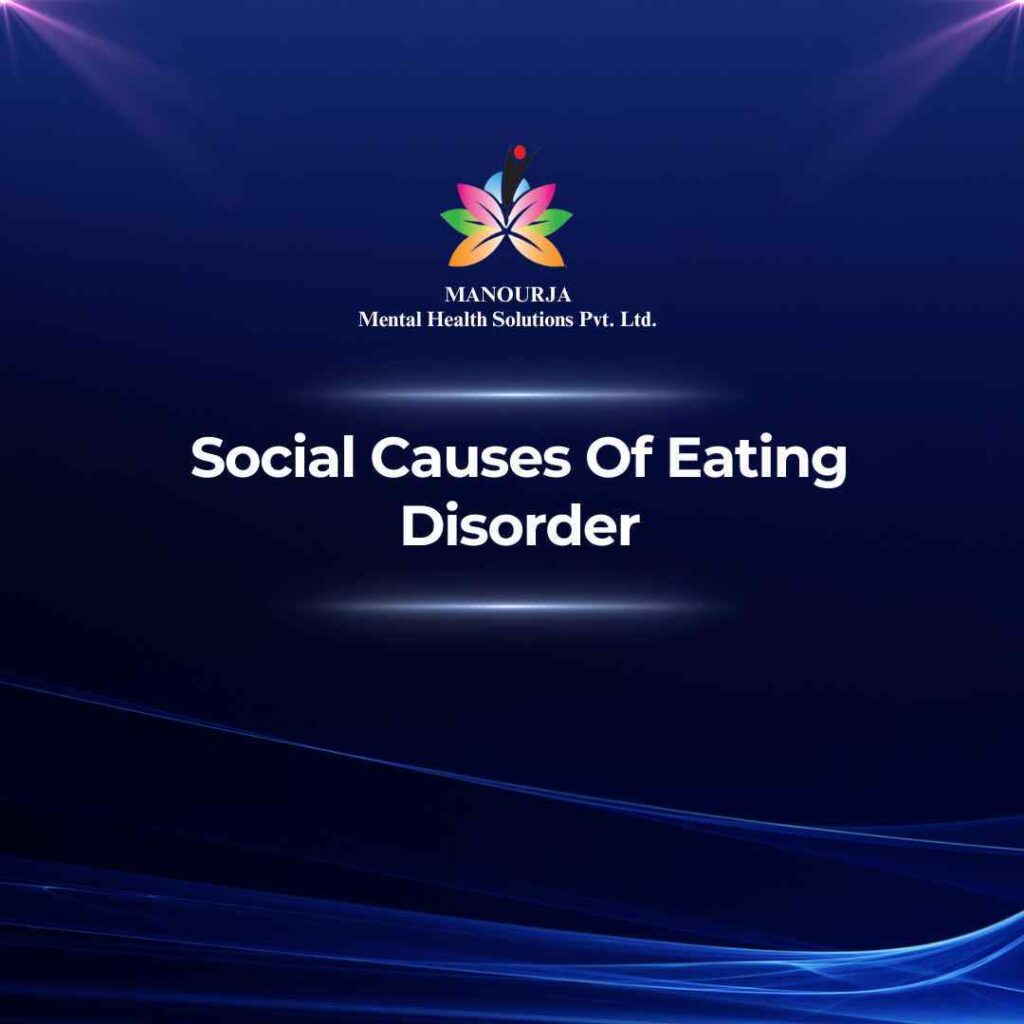Social Causes of Eating Disorder

Social causes of eating disorders refer to the influences stemming from an individual’s social interactions, cultural norms, and the media environment. These factors can significantly impact how people perceive their bodies and how they relate to food. Understanding these social causes is crucial in addressing the broader context that can contribute to the development and perpetuation of eating disorders.
Cultural Pressure and Beauty Standards
Societal norms and cultural pressures about body image and beauty standards are pervasive and can be a significant driver of eating disorders. Many cultures idealize thinness or specific body shapes, and this idealization is heavily promoted through advertising, television, movies, and magazines. Individuals may feel immense pressure to conform to these standards, leading to disordered eating behaviors as a way to achieve or maintain the idealized body type.
Media Influence
The media plays a powerful role in shaping beliefs and attitudes about beauty and success, often perpetuating unrealistic and unattainable body standards. Constant exposure to images of thin or sculpted bodies as ideals can increase body dissatisfaction, particularly among young people, and contribute to the development of eating disorders.
Social Comparison
Social comparison theory suggests that individuals determine their own social and personal worth based on how they stack up against others. In today’s digital age, social media platforms amplify this effect by constantly exposing users to curated images of others’ lives and bodies. This environment can foster an unhealthy comparison that may trigger or exacerbate eating disorder behaviors.
Peer Pressure
Among adolescents and young adults, peer influences are particularly strong. Friends and acquaintances can influence attitudes and behaviors regarding weight and dieting. For example, if a peer group values thinness highly and engages in dieting or critiques members’ bodies, this can increase the risk of developing disordered eating among the group members.
Family Dynamics
Family attitudes and behaviors concerning food and body image also play a critical role. Families that emphasize physical appearance, weight, and dieting can contribute to the onset of eating disorders in susceptible individuals. Moreover, family conflicts, communication problems, and high expectations can increase stress and anxiety, which may lead to disordered eating as a coping mechanism.
Stressful Life Transitions
Significant life changes or transitions, such as moving to a new city, starting a new school or job, or going through puberty or other significant life stages, can increase vulnerability to eating disorders. During these times, individuals may turn to eating behavior control as a way to manage uncertainty or regain a sense of control.
Gender Norms and Roles
Expectations based on gender roles can also contribute to eating disorders. For instance, women may feel pressure to be slender due to societal norms that equate thinness with femininity and attractiveness. Men, on the other hand, might feel pressure to achieve a muscular physique. These pressures can lead to unhealthy behaviors like extreme dieting, excessive exercise, or steroid abuse.
Addressing the social causes of eating disorders involves promoting a healthier, more inclusive culture that values diversity in body shapes and sizes and reducing the stigma associated with seeking help for mental health issues. Public health initiatives, education programs, and community support can help change the harmful norms and provide support for those affected.
At MANOURJA, we believe in the transformative power of counseling. Our experienced therapists offer a safe and supportive space where you can explore your thoughts, emotions, and challenges. Through personalized counselling sessions, we’ll work together to develop coping strategies, build resilience, and achieve lasting positive change. Discover the path to a healthier, happier you with MANOURJA counselling services.
MANOURJA Rehabilitation Services
At MANOURJA, we’re dedicated to helping you in rebuild your life, after difficult times. Our rehabilitation services focus on understanding what you need to move forward, whether you’re recovering from addiction, trauma, or any psychological – social challenges. We create personalized plans, that are all about helping you, regain your strength and find hope again. With a caring team by your side, you’ll have the support to make real progress and take steps toward a brighter, healthier future.
